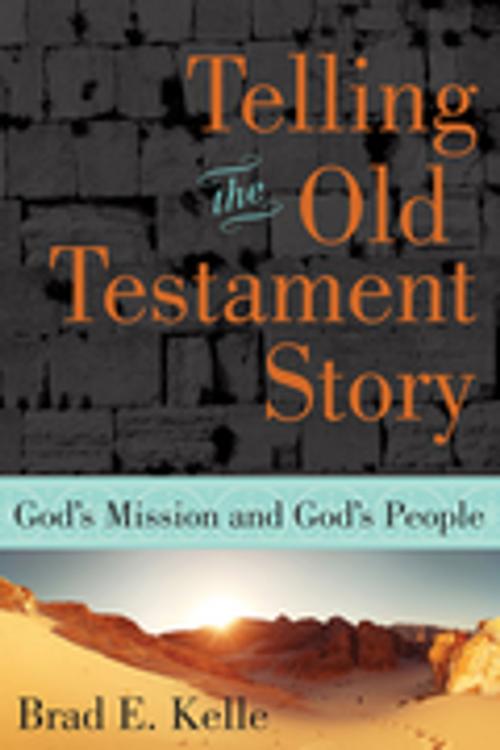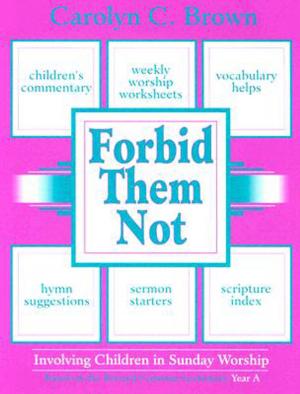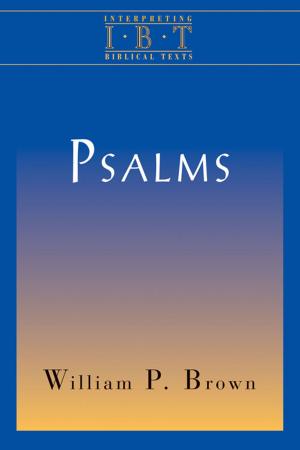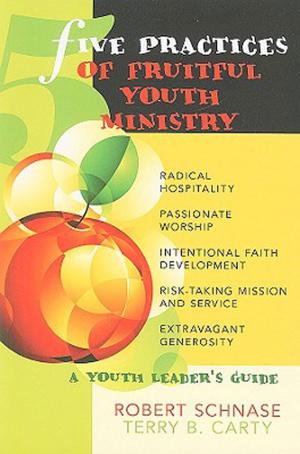Telling the Old Testament Story
God's Mission and God's People
Nonfiction, Religion & Spirituality, Bible & Bible Studies, Old Testament, Criticism & Interpretation, Study| Author: | Brad E. Kelle | ISBN: | 9781426793059 |
| Publisher: | Abingdon Press | Publication: | October 17, 2017 |
| Imprint: | Abingdon Press | Language: | English |
| Author: | Brad E. Kelle |
| ISBN: | 9781426793059 |
| Publisher: | Abingdon Press |
| Publication: | October 17, 2017 |
| Imprint: | Abingdon Press |
| Language: | English |
While honoring the historical context and literary diversity of the Old Testament, Telling the Old Testament Story is a thematic reading that construes the OT as a complex but coherent narrative. Unlike standard, introductory textbooks that only cover basic background and interpretive issues for each Old Testament book, this introduction combines a thematic approach with careful exegetical attention to representative biblical texts, ultimately telling the macro-level story, while drawing out the multiple nuances present within different texts and traditions.
The book works from the Protestant canonical arrangement of the Old Testament, which understands the story of the Old Testament as the story of God and God’s relationship with all creation in love and redemption—a story that joins the New Testament to the Old. Within this broader story, the Old Testament presents the specific story of God and God’s relationship with Israel as the people called, created, and formed to be God’s covenant partner and instrument within creation.
The Old Testament begins by introducing God’s mission in Genesis. The story opens with the portrait of God’s good, intended creation of right-relationships (Gen 1—2) and the subsequent distortion of that good creation as a result of humanity’s rebellion (Gen 3—11). Genesis 12 and following introduce God’s commitment to restore creation back to the right-relationships and divine intentions with which it began. Coming out of God’s new covenant engagement with creation in Gen 9, this divine purpose begins with the calling of a people (who turn out to be the manifold descendants of Abraham and Sarah) to be God’s instrument of blessing for all creation and thus to reverse the curse brought on by sin. The diverse traditions that comprise the remainder of the Pentateuch then combine to portray the creation and formation of Israel as a people prepared to be God’s instrument of restoration and blessing. As the subsequent Old Testament books portray Israel’s life in the land and journey into and out of exile, the reader encounters complex perspectives on Israel’s attempts to understand who God is, who they are as God’s people, and how, therefore, they ought to live out their identity as God’s people within God’s mission in the world. The final prophetic books that conclude the Protestant Old Testament ultimately give the story of God’s mission and people an open-ended quality, suggesting that God’s mission for God’s people continues and leading Christian readers to consider the New Testament’s story of the Church as an extension and expansion of the broader story of God introduced in the Old Testament.
The main methodological perspective that informs the book includes work on the phenomenological function of narrative (especially story’s function to shape the identity and practice of the reader), as well as more recent so-called “missional” approaches to reading Christian scripture. Canonical criticism provides the primary means for relating the distinctive voices within the Old Testament texts that still honor the particularity and diversity of the discrete compositions.
Accessibly written, this book invites readers to enter imaginatively into the biblical story and find the Old Testament's lively and enduring implications.
While honoring the historical context and literary diversity of the Old Testament, Telling the Old Testament Story is a thematic reading that construes the OT as a complex but coherent narrative. Unlike standard, introductory textbooks that only cover basic background and interpretive issues for each Old Testament book, this introduction combines a thematic approach with careful exegetical attention to representative biblical texts, ultimately telling the macro-level story, while drawing out the multiple nuances present within different texts and traditions.
The book works from the Protestant canonical arrangement of the Old Testament, which understands the story of the Old Testament as the story of God and God’s relationship with all creation in love and redemption—a story that joins the New Testament to the Old. Within this broader story, the Old Testament presents the specific story of God and God’s relationship with Israel as the people called, created, and formed to be God’s covenant partner and instrument within creation.
The Old Testament begins by introducing God’s mission in Genesis. The story opens with the portrait of God’s good, intended creation of right-relationships (Gen 1—2) and the subsequent distortion of that good creation as a result of humanity’s rebellion (Gen 3—11). Genesis 12 and following introduce God’s commitment to restore creation back to the right-relationships and divine intentions with which it began. Coming out of God’s new covenant engagement with creation in Gen 9, this divine purpose begins with the calling of a people (who turn out to be the manifold descendants of Abraham and Sarah) to be God’s instrument of blessing for all creation and thus to reverse the curse brought on by sin. The diverse traditions that comprise the remainder of the Pentateuch then combine to portray the creation and formation of Israel as a people prepared to be God’s instrument of restoration and blessing. As the subsequent Old Testament books portray Israel’s life in the land and journey into and out of exile, the reader encounters complex perspectives on Israel’s attempts to understand who God is, who they are as God’s people, and how, therefore, they ought to live out their identity as God’s people within God’s mission in the world. The final prophetic books that conclude the Protestant Old Testament ultimately give the story of God’s mission and people an open-ended quality, suggesting that God’s mission for God’s people continues and leading Christian readers to consider the New Testament’s story of the Church as an extension and expansion of the broader story of God introduced in the Old Testament.
The main methodological perspective that informs the book includes work on the phenomenological function of narrative (especially story’s function to shape the identity and practice of the reader), as well as more recent so-called “missional” approaches to reading Christian scripture. Canonical criticism provides the primary means for relating the distinctive voices within the Old Testament texts that still honor the particularity and diversity of the discrete compositions.
Accessibly written, this book invites readers to enter imaginatively into the biblical story and find the Old Testament's lively and enduring implications.





![Cover of the book The Gift of New Hope [Large Print] by Brad E. Kelle](https://www.kuoky.com/images/2018/september/300x300/9781501870866-SOVT_300x.jpg)









